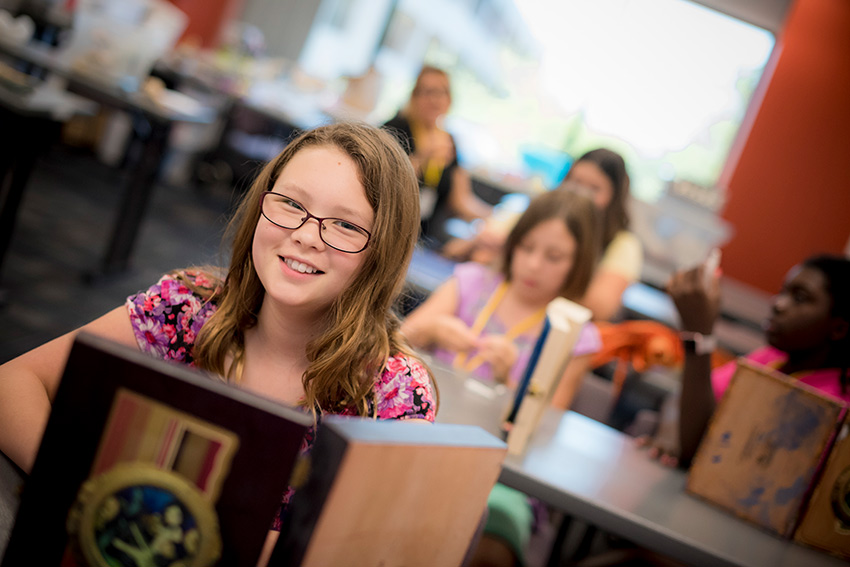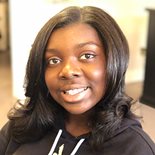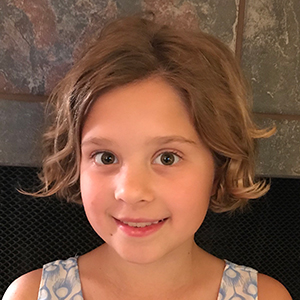4 April 2018
Junior Academy Gives Students a Summertime Blast of STEAM
By Jennifer McEntee

Building drones. Designing video games. Self-publishing art books. Making movies. The interactive workshops offered through the Sally Ride Science Junior Academy are not your typical summer school fare.
The Sally Ride Science Junior Academy is for students entering sixth through 12th grade who have an interest in science, technology, engineering, arts and math, collectively known as STEAM. Junior Academy summer workshops immerse the students in hands-on projects for 1-week, 2-weeks or 4-weeks in June and July at Mission Bay High School. Topics in 2018 include marine microbiology, neuroscience, coding, digital design, filmmaking, fractal poetry and architecture.
The summer program is offered by Sally Ride Science at UC San Diego, a nonprofit organization operated by UC San Diego and co-founded by the late American astronaut Sally Ride. Sally Ride Science at UC San Diego also offers a year-round series of free STEAM workshops called Library NExT (Network of Education x Training) for middle and high school students at San Diego libraries citywide.
 Seventh-grader Nyla Brown and sixth-grader Nora Morgan participated in last summer’s Sally Ride Science Junior Academy program. Nyla also participated in the program the year prior. Both girls intend to sign up for the 2018 Sally Ride Science Junior Academy.
Seventh-grader Nyla Brown and sixth-grader Nora Morgan participated in last summer’s Sally Ride Science Junior Academy program. Nyla also participated in the program the year prior. Both girls intend to sign up for the 2018 Sally Ride Science Junior Academy.
Nyla and Nora say the workshops let them explore some of their favorite academic subjects in fun, creative ways. The pair recently spoke about their interests and experiences in the Sally Ride Science Junior Academy.
Tell us a little bit about yourselves.
Nyla: I play golf and volleyball, and I sing and act.
Nora: I do swimming and piano after school. Sometimes I do extra science projects on my own, like making fake snow or building a toy rocket.
 Why did you decide to enroll in this program?
Why did you decide to enroll in this program?
Nyla: My mom came up to me one day and said, ‘This would be a good program for you.’ I learned about STEAM and thought it was very, very cool. I thought, ‘Maybe I should give this a try.’
Nora: My friend shared it with me and it sounded really interesting, and then we went to an open house about it.
What have you learned that made you happy you enrolled or that changed your way of thinking/how you do things?
Nyla: I learned a lot about circuits–I didn’t know anything about them before–and about LEGO robotics, and virtual reality. I’m very interested in science, art and mathematics, so I saw how they tie into different things.
I don’t know what I want to study in college. I might be an architect, and there’s a lot of math that ties into that.
Nora: I learned about sea creatures. We dissected a squid and learned about its ink and that you can write with it. At school, we’re going to dissect a frog, and since I’ve already dissected a squid, I know the tools we’ll use.
What advice would you give to other students coming into this program?
Nyla: For one, they should definitely try it out. It’s a great way to express yourself, build and make things. Also, you have a lot of fun with it. It’s a fun way to express yourself and do what you think would work.
Nora: I would say, don’t be bummed if you don’t get something right in an experiment on the first try. In science, everyone makes mistakes. Don’t be afraid to be wrong. I made a lot of friends in the Junior Academy workshop and all the teachers are nice. We also did a lot of cool art projects.
What will you do with the knowledge/skills that you gained from being involved in this program? Has it changed or improved your life in some way?
Nyla: Yes, it has. I can figure things out better than I could before. It also helped me with my confidence. I also got to meet a lot of people and make new friends who helped and supported me. The people at Junior Academy were very nice.
Nora: It’s helped me with my interest in science, particularly zoology. I want to be a marine biologist or a zoologist when I grow up.
Sally Ride, America’s first woman in space, joined with four friends to found Sally Ride Science in 2001. Their goal was to inspire students, especially girls, to study science and consider careers in science and engineering. In 2015, Sally Ride Science became part of UC San Diego. Sally Ride Science is managed by UC San Diego, and the programs are coordinated jointly by Extension, Scripps Institution of Oceanography and the San Diego Supercomputer Center.